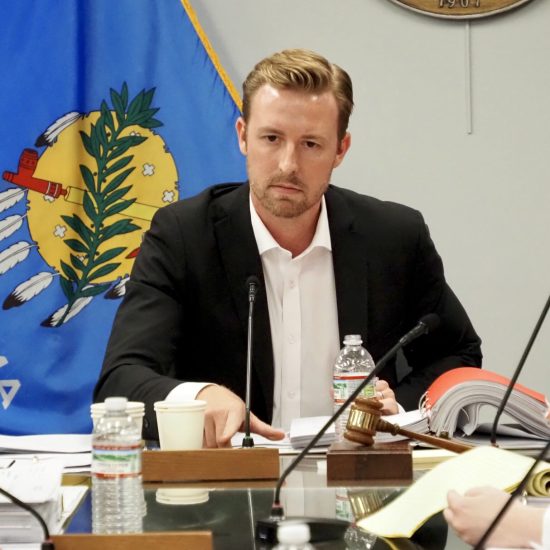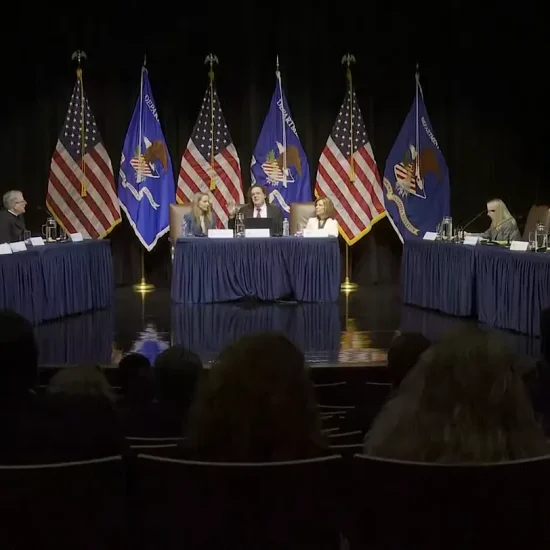

Old Main at Hamline University in St. Paul, Minnesota. Photo by Eoin/Wikipedia/Creative Commons
(RNS) — The faculty of Hamline University have called on President Fayneese Miller to resign, saying they no longer have faith in her ability to lead the St. Paul, Minnesota, school after what they see as the mishandling of a Muslim student’s complaint about an instructor showing a painting of the Prophet Muhammad.
Meeting Tuesday (Jan. 24), one day after the start of the spring semester, the faculty voted 71-12 (with nine abstentions) to ask for the president’s resignation in what has become an international scandal over academic freedom and Islamic art.
“As we no longer have faith in President Miller’s ability to lead the university forward, we call upon her to immediately tender her resignation to the Hamline University board of trustees,” the letter stated. “We are united in this statement. We are the faculty of Hamline University.”
The letter follows a firestorm of criticism after the university did not renew the contract of the instructor who showed a 14th-century painting of the Prophet Muhammad in her online art history class last semester.
During the class, adjunct professor Erika López Prater showed students a treasured painting depicting the prophet receiving a revelation from the Angel Gabriel. The professor notified students, both in class and on her syllabus, that she would show the image and allowed those students who believe images of the prophet are forbidden not to participate. Student Aram Wedatalla, however, complained to administrators that the showing of the painting was offensive and hurtful and that the instructor’s “trigger warning” was proof she shouldn’t have shown the images.
Miller rushed to the Muslim student’s defense. Her administration at first labeled the art history professor’s showing of the painting as “undeniably inconsiderate, disrespectful and Islamophobic.” Miller herself wrote that “respect, decency, and appreciation of religious and other differences should supersede academic freedom.” The university has since retracted its characterization of the instructor as “Islamophobic” and revised the president’s statement, saying academic freedom and respect for religious traditions should coexist.
Last week, López Prater sued the university in Minnesota district court, alleging religious discrimination and defamation.
Before taking the vote calling for the president’s resignation, the Hamline faculty voted to approve a letter to Muslim students expressing their support and care for them and explaining that they don’t see tension between a professor’s academic freedom and supporting students.
Mark Berkson, a professor who chairs the department of religion at Hamline and teaches a class on Islam, said he has had an excellent relationship with Muslim students on campus over the years.
“We respect the religious beliefs of students, Berkson said. “We will honor any religious obligation or prohibition they have. What we cannot do is impose that religious prohibition on everyone in the academic community. The paintings in question are part of the history of Islamic art. It should absolutely be the right of teachers to teach them and students to learn about them. Otherwise, we would be erasing an entire genre of Islamic art. This is not something that we as an institution should do.”
Muslim scholars across the world have strongly criticized the university’s response, saying a prohibition on images of the Prophet Muhammad is not universal and various Islamic cultures through the years have contributed devotional depictions of the Prophet Muhammad intended to venerate the prophet, not to denigrate him.
The national office of the Council on American-Islamic Relations, a civil rights organization defending Muslims, also said it saw no evidence of Islamophobic intent in the instructor’s actions.
The university did not respond to requests for comment.






